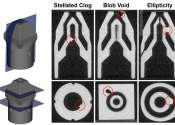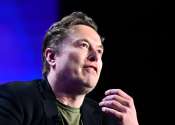Technology is a broad concept that deals with an animal species' usage and knowledge of tools and crafts, and how it affects an animal species' ability to control and adapt to its environment. Technology is a term with origins in the Greek "technologia", "τεχνολογία" — "techne", "τέχνη" ("craft") and "logia", "λογία" ("saying"). However, a strict definition is elusive; "technology" can refer to material objects of use to humanity, such as machines, hardware or utensils, but can also encompass broader themes, including systems, methods of organization, and techniques. The term can either be applied generally or to specific areas: examples include "construction technology", "medical technology", or "state-of-the-art technology".
The human species' use of technology began with the conversion of natural resources into simple tools. The prehistorical discovery of the ability to control fire increased the available sources of food and the invention of the wheel helped humans in travelling in and controlling their environment. Recent technological developments, including the printing press, the telephone, and the Internet, have lessened physical barriers to communication and allowed humans to interact freely on a global scale. However, not all technology has been used for peaceful purposes; the development of weapons of ever-increasing destructive power has progressed throughout history, from clubs to nuclear weapons.
Technology has affected society and its surroundings in a number of ways. In many societies, technology has helped develop more advanced economies (including today's global economy) and has allowed the rise of a leisure class. Many technological processes produce unwanted by-products, known as pollution, and deplete natural resources, to the detriment of the Earth and its environment. Various implementations of technology influence the values of a society and new technology often raises new ethical questions. Examples include the rise of the notion of efficiency in terms of human productivity, a term originally applied only to machines, and the challenge of traditional norms.
Philosophical debates have arisen over the present and future use of technology in society, with disagreements over whether technology improves the human condition or worsens it. Neo-Luddism, anarcho-primitivism, and similar movements criticise the pervasiveness of technology in the modern world, opining that it harms the environment and alienates people; proponents of ideologies such as transhumanism and techno-progressivism view continued technological progress as beneficial to society and the human condition. Indeed, until recently, it was believed that the development of technology was restricted only to human beings, but recent scientific studies indicate that other primates and certain dolphin communities have developed simple tools and learned to pass their knowledge to other generations.









